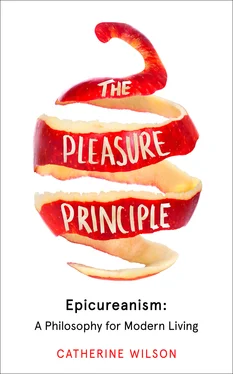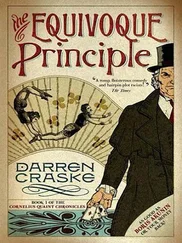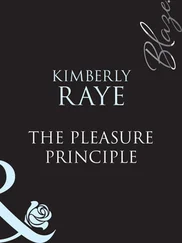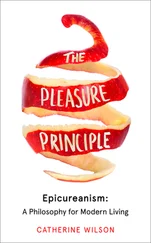Lucretius
Many species of animals must have perished and failed to propagate and perpetuate their race. For every species that you see breathing the breath of life has been protected and preserved from the beginning of its existence either by cunning or by courage or by speed.
Lucretius
The Epicurean believes that there was always something. There was never a time when nothing existed. This something was not, we now know, matter, but the precursor of matter. Today, we are told of fluctuations in the quantum vacuum of virtual particles, flickering in and out of existence, that gave birth to space, time and matter. Explosive events studded space with stars in which the elements of the periodic table were born, and the world we experience now emerged from a disorganised state of matter in motion that fell into stable configurations over perhaps 14 billion years. Our earth was a molten mass spun off from the sun whose geological features – its continents, oceans and mountains – were formed by violent physical processes as it cooled down.
In the ancient seas, some hundreds of millions of years after the formation of planet earth about 4.5 billion years ago, bombardment by lightning is thought to have produced organic molecules, including amino acids, which are composed of carbon, nitrogen, hydrogen and oxygen and which are the building blocks of proteins. These were stable molecules that came together to form protein strands that were also relatively stable and served as templates that formed other molecules into identical strands. Structures that held together and copied themselves proliferated, and varied, adding small increments of complexity and joining up with others. The others just fell apart.
Or perhaps these stable organic molecules were formed somewhere else in the universe and seeded our earth, arriving in meteors or in the icy tails of comets. In either case, the first single-celled organisms emerged around 3.85 billion years ago. Some were able to join up with others to form larger stable complexes. The ‘struggle for existence’ has accordingly been happening for nearly 4 billion years. Time, chance and the operation of the forces described by physics and chemistry have been sufficient to produce everything we see around us.
The Epicurean Theory of Natural Selection
Many of us were taught in school, or at least came away with the impression, that until Charles Darwin published his On the Origin of Species in 1859, ‘everybody’ believed that the world had been created by a divinity in seven days, that Adam and Eve were the first human beings, and that Noah’s Ark housed all the originally created animals. This is incorrect. Although Christianity and Judaism share this account, and although the Islamic account is similar to it, the other major religions, such as Buddhism, Hinduism and Confucianism, have their own accounts, and stories about how the world came to be are found in every culture on earth.
Further, the ancient Greek philosophers who preceded the Epicureans imagined the origins of the universe and its inhabitants in very different ways, as arising, for example, from the interactions of Love and Strife. Intriguingly, the ancient Epicureans themselves grasped the basic principle of what Darwin later called ‘natural selection’, anticipating some elements of his theory of evolution without having any real notion of the time scales involved and without understanding how one species could possibly give rise to another.
The Epicureans proposed that combinations of atoms taking the form of animals developed by chance or from atomic ‘seeds’ buried in the earth. Animals with features that favoured their survival, such as cunning, courage and speed, were able to persist longer than others that lacked these features. Over time, animals whose internal structure happened to create copy-creating copies of themselves arose by chance. If nature hadn’t stumbled on such devices in the distant past, we wouldn’t be around to observe other living things and to have thoughts about the origins of life. ‘I am anxious that you should carefully avoid the mistake,’ Lucretius says, ‘of supposing that the lustrous eyes were created to enable us to see; or that the tapering shins and thighs were attached to the feet as a base to enable us to walk.’ All such explanations, he adds, ‘are propounded preposterously with topsy-turvy reasoning … Sight did not exist before the birth of the eyes.’
This position was long ridiculed as absurd. The ‘random concourse of atoms’, it was alleged, could never have produced functioning living bodies and the regular movements of the heavenly bodies. But thanks to its perceived absurdity, it remained a target of criticism and stayed fresh in the minds of philosophers.
It is not so difficult to believe that the geological features of the earth appeared on account of the laws of physics and chemistry, that no intelligent being had to design them and make them. But life, in its complexity and diversity, has always posed much more of an explanatory problem. How could roses, peacocks and tigers, not to mention human beings, have come into the world through the operation of the laws of physics and chemistry? How could not only structure, but behaviour, such as the ability to build hives composed of hexagonal cells, as bees do, or the ability to use the stars for orientation in migration, as birds do, have arisen from the unguided motion of atoms in the void? These animals seem to have been intentionally fashioned to be beautiful and adorn the world, or to be good hunters or flyers, or producers of useful foodstuffs for us.
The creative action of God was compared in the Jewish, Christian and Islamic traditions to the activity of fashioning a figure or a pot from clay; references to the ‘hand’ or ‘hands’ and ‘finger’ of God are frequent in our literature. As the ancient painter took over where the ancient potter left off, and decorated the pot with the figures of birds, animals and humans, so God was thought of as making and embellishing the world. The theory of divine creation became more rather than less plausible in the period of the 17th-century Scientific Revolution when the intricacies of the bodies of insects and the tissues of other animals were first revealed by the microscope and when the ‘mechanics’ of the human body, considered to be a kind of hydraulic system working by the pressure of blood, lymph and cerebrospinal fluids in its vessels, began to be worked out. An argument widely considered irrefutable, and frequently presented in the 18th century, went more or less as follows: if I were to find a watch lying in the sand on a beach, I would never suppose that it had come into existence just by chance, or thanks to the laws of physics. And I would not expect a watch to produce little watches. Obviously, such a contrivance had to have been made by an intelligent being that had a purpose in mind, namely telling the time.
The same thought would have occurred to anyone in the early 19th century who stumbled on a woollen mill in a clearing in the woods, or anyone in the 20th century who encountered an automobile factory that turned sheets of steel and other materials into functional cars. Watches, mills and factories have to be carefully thought out and put together by a group of intelligent and capable beings – or by one extremely intelligent and extremely capable being – to succeed in doing what they do.
Animals somewhat resemble watches, mills and factories. Like watches, they have a lot of small moving parts. Like mills and factories, they transform inert basic materials – air, food and water – into functioning tissues and organs. Their individual parts work together in an integrated, harmonious manner to make life and reproduction possible, as the springs and wheels of the watch or the various components of the mill or factory function to turn the hands on the dial or deliver blankets, shawls and cars. The conclusion that animals – the first prototypes, at least – had been designed and created by a supernatural being looked inescapable.
Читать дальше












